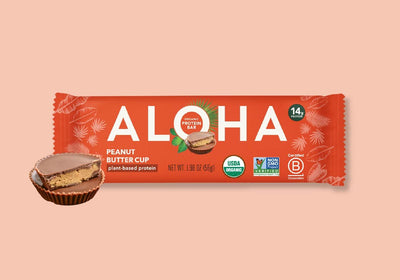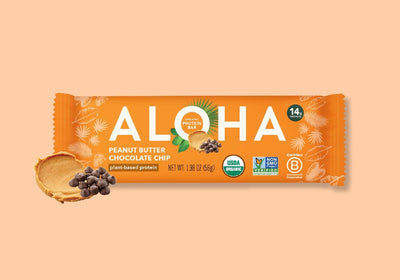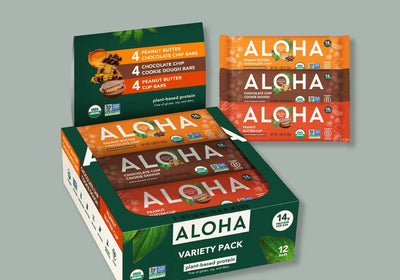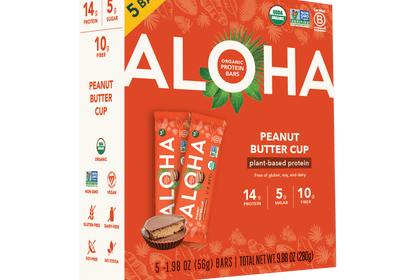Snacks that are both nutritious and easy to eat on the move are key. Peanut butter cup protein bars fit the bill, combining the familiar flavors of peanut butter and chocolate with a healthy boost of protein. This article will cover what you should know about peanut butter cup protein bars, whether you're looking for recovery food after exercise or a quick bite during a busy day.
Understanding Protein Bars
Protein bars are compact snacks designed to be a convenient source of nutrition. They usually contain a significant amount of protein, aiding in satisfying hunger, muscle building, and recovery. Used by athletes, those with active lifestyles, and busy professionals, protein bars come in various flavors and compositions to meet different dietary needs and preferences. When selecting a protein bar, it's important to consider the balance of macros, the quality of ingredients, and specific health goals.
Added Benefits Of Peanut Butter In Protein Bars
Peanut butter is a common ingredient in protein bars for its rich, creamy taste that complements the flavor profile. It's a natural source of protein and healthy fats, contributing to the nutritional value of the bar. The unsaturated fats in peanut butter are known to be heart-healthy, and it helps extend the shelf-life of protein bars.
Nutritional Breakdown Of Peanut Butter Cup Protein Bars
The nutritional profile includes a blend of proteins, carbohydrates, and fats. These bars provide a convenient boost of protein essential for muscle repair and growth. Carbohydrates serve as a quick energy source, while fats, especially from peanut butter, offer sustained energy and flavor. Dietary fibers promote digestive health and enhance the feeling of fullness.
Ingredient Profile Of Quality Peanut Butter Cup Protein Bars
A high-quality peanut butter cup protein bar should contain a short list of recognizable ingredients. Typically including a protein source (whey, soy, or plant-based), whole food components (nuts or oats), natural sweetness (honey, dates, or stevia), and ideally dark or minimally processed chocolate. Manufacturers may add non-artificial preservatives or binders to maintain freshness.
Health Benefits Associated with Peanut Butter Cup Protein Bars
Energy And Muscle Recovery
Peanut butter cup protein bars are effective in post-exercise nutrition, aiding in muscle repair and glycogen replenishment. Suitable for endurance athletes to reduce muscle soreness and speed up recovery.
Convenience And Satiety
Offering a filling and convenient alternative for regular, balanced meals. Protein and fiber content promote a sense of fullness, aiding in weight management. Ideal for quick breakfast, midday snack, or pre-meeting energy booster, making them a versatile choice for a busy lifestyle.
Meeting Nutritional Goals
Useful for tracking nutritional intake, particularly for individuals not consuming enough protein from their regular diet. Moderation is key, integrating bars into a balanced nutritional plan.
Incorporating Peanut Butter Cup Protein Bars Into Your Fitness Regime
Pre-Workout Benefits
Eating a peanut butter cup protein bar before exercise provides a compact energy source without weighing you down. Ideal to consume one to two hours before exercising for effective digestion and nutrient metabolism. Protein helps prime muscles for lifting or resistance training.
Post-Workout Recovery
After a workout, the body needs protein and carbohydrates for muscle repair and energy replenishment. A peanut butter cup protein bar serves as a quick and effective replenishment, especially when a meal is not immediately available. Consume within a 30-minute window post-exercise for optimal recovery.
Aligning With Fitness Goals
Adjust peanut butter cup protein bars within the diet plan based on fitness goals. For weight loss, they may replace a higher-calorie meal or snack. For muscle gain, add a protein bar to the regular meal plan. Consider bars as part of overall calorie and nutrient intake, aligning consumption with workout timing for the best results.
Selecting The Right Peanut Butter Cup Protein Bar
Checking The Nutrition Label
Scrutinize the nutrition label for protein content, sugar levels, fiber content, and calorie count. Ensure it fits within dietary goals for weight loss, maintenance, or gain.
Considering Dietary Restrictions And Preferences
Various protein bars cater to different dietary needs (gluten-free, dairy-free, non-GMO, vegan). Select a bar aligning with any dietary restrictions. Taste preference, ingredient transparency, and quality are crucial for long-term health and satisfaction.
Frequently Asked Questions
Are there any side effects or risks associated with consuming peanut butter cup protein bars?
Potential side effects may include digestive discomfort due to specific ingredients or allergens. Moderation and checking labels for allergens are advisable.
Can peanut butter cup protein bars be used as meal replacements or snacks?
Yes, peanut butter cup protein bars can serve as convenient snacks or light meal replacements, depending on individual dietary needs.
Are there any considerations for choosing the best peanut butter cup protein bars for specific dietary needs or allergies?
Reviewing labels for allergen information and suitable formulations is crucial for individuals with dietary restrictions or allergies.
How do peanut butter cup protein bars taste compared to actual peanut butter cups?
While aiming for a similar flavor, peanut butter cup protein bars might have a different texture and sweetness compared to traditional peanut butter cups.
Do peanut butter cup protein bars contain added sugars or artificial ingredients?
Not all peanut butter cup protein bars contain added sugars or artificial ingredients. Checking labels is essential, as formulations vary between brands.
What is the ideal time to consume peanut butter cup protein bars for maximum effectiveness?
Peanut butter cup protein bars can be consumed as snacks, pre or post-workout, or between meals to supplement protein intake based on individual preferences.
Can peanut butter cup protein bars be used as a convenient on-the-go snack?
Absolutely, peanut butter cup protein bars are convenient and portable, making them an ideal on-the-go snack option for quick protein intake.
Are there any specific considerations for storing or preserving peanut butter cup protein bars?
Storing peanut butter cup protein bars in a cool, dry place is recommended. Following storage instructions on the packaging ensures optimal freshness.
Do peanut butter cup protein bars contain allergens such as nuts, soy, gluten, or dairy?
Yes, peanut butter cup protein bars may contain common allergens like nuts, soy, gluten, or dairy. Reviewing labels for allergen information is important for those with allergies or dietary restrictions.

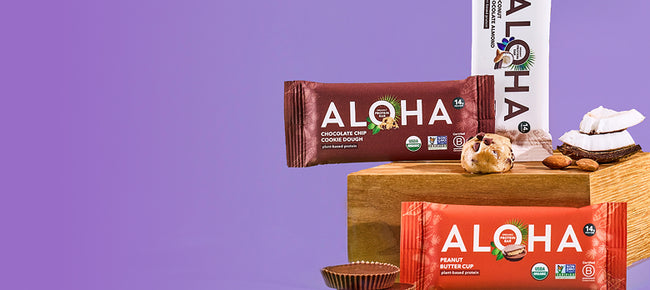 collection header image
collection header image
 collection header image
collection header image
